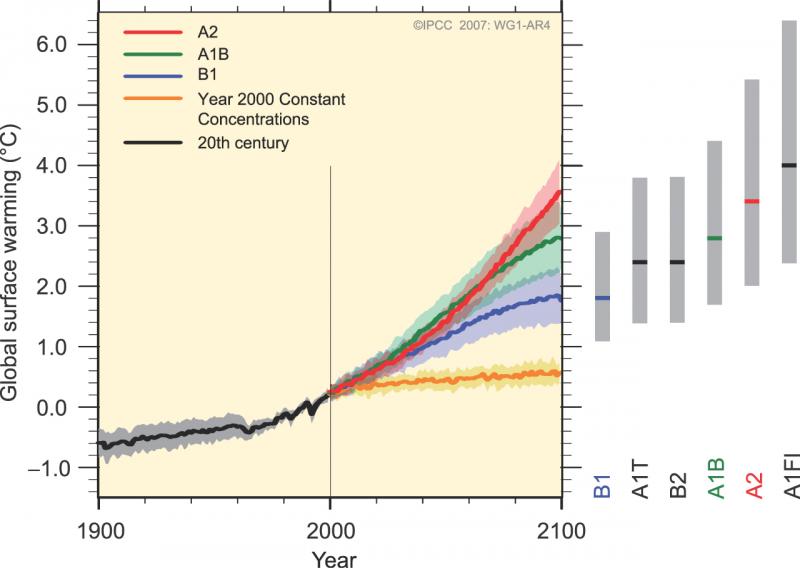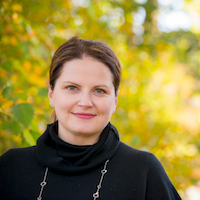There are so many things that I love about being a scientist and writing about science. It’s creative, challenging, and incredibly interesting. I mean, where else but in science can it be your job to think about why human males have nipples, or what the heck this weird protrusion on this particular vertebrae in this particular species of whale does? (Yep. That’s what I spent a couple of years thinking about—and I loved it.) But there is one thing I really really don’t like about science: Science can’t prove anything. Now, to be clear, I don’t mind that science can’t prove anything (and actually, I think it’s super cool, as I’ll explain in a minute)—what I mind is that non-scientists think that this means that we scientists don’t know anything, that we are completely unsure and wishy-washy about all of our ideas and conclusions. Not true!
Misconception: Science proves ideas.
Correction: Science provides evidence for (or against) ideas.
Here’s what happens. A big study comes out—say, the IPCC report or the National  Climate Assessment—and scientists get interviewed about the conclusions of the report. In these cases, that humans are contributing to climate change. The scientist will explain the overwhelming evidence in support of this conclusion. Sometimes, the reporter will ask something along the lines of, “So, without a doubt, you proved it?” and the scientist says something like, “No, not without any doubt, but all the evidence is pointing in that direction.” Then, talking heads will get on the air or in the headlines claiming that scientists admit that the report doesn’t prove anything.
Climate Assessment—and scientists get interviewed about the conclusions of the report. In these cases, that humans are contributing to climate change. The scientist will explain the overwhelming evidence in support of this conclusion. Sometimes, the reporter will ask something along the lines of, “So, without a doubt, you proved it?” and the scientist says something like, “No, not without any doubt, but all the evidence is pointing in that direction.” Then, talking heads will get on the air or in the headlines claiming that scientists admit that the report doesn’t prove anything.
SIGH.
I wish I were exaggerating, but I’m not. This happens all the time. (Try this: Google “Bill O’Reilly climate change.”) So why can’t science prove anything? Frankly, because it’s unscientific to claim to prove something. Science is in the business of accumulating evidence. (If you want proof, you want a mathematician or distiller, not a scientist). As the evidence piles on, from experiments, models, and studies, scientists feel more and more confident in their conclusions. But scientists operate under the principle that at any time, evidence can be found that will overturn a conclusion, not matter how widely accepted that idea is.
There is a great scene from the TV show Friends that illustrates how this principle of science can be a major pain in the tuchus when talking to non-scientists. In the scene, paleontologist Ross is trying to convince Phoebe of evolution. He brings in a briefcase of fossils, but before he can explain how fossils are evidence for evolution, Phoebe jumps in: “Are you telling me that you are so unbelievably arrogant that you can’t admit that there is a teeny, tiny possibility that you could be wrong about this?” And Ross has to say, after a long pause, “There might be...a teeny…tiny…possibility.” And then Phoebe tells him that she can’t believe he abandoned his principles so easily.
To get Ross to this point, Phoebe talks about a time when scientists were so sure about a flat Earth, or of the atom being the smallest thing. As some readers have pointed out, these are oft-used, but not great examples of the evolution of scientific thought, since no scientists really ever thought the Earth was flat, and the atom was postulated to be the smallest unit of matter before the technology existed to oberserve it, and as soon as atoms were observed, electrons were discovered. Perhaps a better example that Phoebe could have used wold have been that at one time, scientists thought the largest dinosaurs lived in swamps so that water could help support their massive bodies, and that all dinosaurs were slow and featherless. In these cases, it's absolutely true that at one time, the information available to science supported those conclusions, but then we learned more! And yes, it turned out science was wrong. But how cool is this? Science never gives up—it never says, “Yeah, we got this. Let’s move on.” Instead, it pursues more and more and more evidence. Evolution by natural selection? Yep, we’re pretty confident about that. But have we proven it? No. And we never will—but we also will never stop gathering evidence in support of it.
How can educators help their students understand why it’s really okay that science doesn’t prove anything? I think the key here goes back to how science works. If students understand how scientific methodologies build knowledge, then they can start to understand that “science doesn’t prove anything” isn’t a weakness—but an incredible strength. It can also help to remind them that just because scientific ideas aren’t proven doesn’t mean they aren’t reliable. In other words, science may not be able to prove that the sun will rise in the East tomorrow, but if I were a vampire, I’d still get home before dawn. (NB: I am not, in fact, a vampire. But no, I can’t use science to prove it.)
I’ll admit that it’s tempting in a few cases—evolution and anthropogenic climate change spring to mind—to wish we had some way of indicating just how much evidence we have. I think this is the idea behind the phrase “scientific consensus” as in “the overwhelming scientific consensus is that humans are contributing to climate change.” But that phrase can potentially feed into another misconception, that scientists vote for conclusions and the most popular ones become “the consensus.” In reality, it’s the evidence that’s overwhelming, not the popularity of the idea.
Maybe what we need is a new phrase. Maybe something like, “we’re scientifically sure” or, “we’re scur” for short? Or, like, a scale from 0–10 that can be calibrated with ideas, like a 0 is “the core of the Earth will stop spinning and Hilary Swank will have to rescue us”—technically a possibility, but not a chance. And a 10 could be natural selection—technically not proven, but c’mon, we’re sure.
Any other ideas out there?

